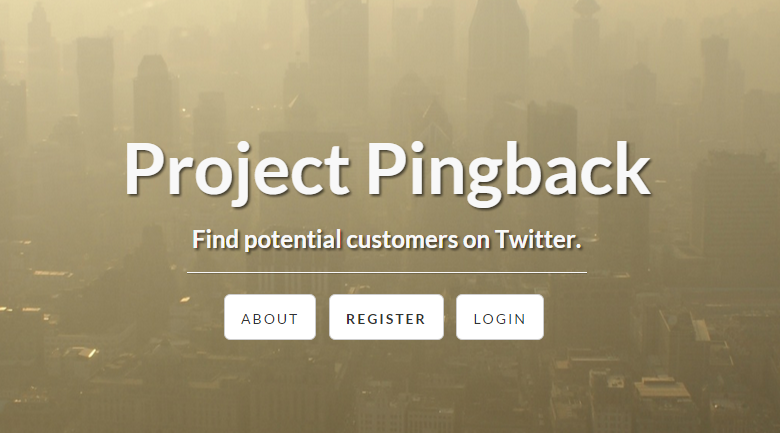
Traffic is not the problem
Consumers look for houses not agents until they are ready to buy. When they find the house, they call the agent, or maybe they go read their blog to learn more about who they are as a person. We spend tons of money and time on our online presence with our web-sites and blogs. Yet we are not handling the inquires in a timely manner, or at all. Do you make one attempt and then say, “Next”?
We know according to NAR that over 72% of buyers start their home search on line. We also know that static’s tell us 60 to 80% of the consumer works with the agent that contacts them first. Look at that number… that is huge!
I submit the answer lies not in the amount of leads an agent is getting but in the agents response time to the inquiry, or forgetting about them after you answer their initial question.
Respond,Nurture,Convert
This is a three step process, not ONE phone call, not ONE email and then bam they buy a house. Maybe back in the day when any Realtor could sell anything with no skills or experience, but those days are over. I suspect those days will not be back for awhile.
If you are sitting in the office and you get a phone call or a consumer sends you an inquiry, what are you doing with it? Are you getting back to them right away? 24 hours or more later? Are you ONLY answering their question and never thinking about them again?Are you trying one time and then forgetting about them?
In this day and age most agents have iPhones, Blackberrys or some sort of smart phone. There is no excuse to not touch base with them within minutes. You can set up an email signature on your phone, something simple, “got your email, showing houses, I will get back to you as soon as I can.” When people want information they want it NOW.
Don’t Give Up
Don’t give up on them, they reached out to you. Send them a Thanksgiving card, a Christmas card, check back in with them, a simple friendly email. If you see a home listed that you think is similar to what they inquired about, send it to them with a friendly note, “Saw this new listing come up and wanted to send it to you”.Short, sweet and to the point.
Someone will connect with them, someone will sell them a house.
Why not you?
***Photo credit***
Written by Missy Caulk, Associate Broker at Keller Williams Ann Arbor. Missy is the author of Ann Arbor Real Estate Talk and Blog Ann Arbor, and is also the Director for the Ann Arbor Area Board of Realtors and Member of MLS and Grievance Committee's.








































Paula Henry
November 17, 2008 at 11:16 am
Missy – You are absolutely correct. We stay in contact with the people who search online and the largest percent of them are actually buying and/or selling six months later.
I just received an email from a prospect yesterday who said Thank You for staying in touch and continuing to send homes for them. They are out of state and have a home to sell there, but they appreciate the continued emails and “touches”.
I recently read many agents only have a two week threshold for dealing with buyers, then they are on to the next one. It takes a long term commitment to the leads we receive.
Joel McDonald (@joelrunner)
November 17, 2008 at 11:24 am
I couldn’t agree more Missy! In fact I wrote a suprisingly similar post just this morning!
We deal almost entirely in online lead generation, and the biggest difference between our top producers, and everyone else — is their willingness to develop a relationship with the prospect.
Missy Caulk
November 17, 2008 at 12:17 pm
Paula, that is exciting when that happens, we have potential residents start to look thinking they may attend U of M. We nurture them and then IF they get assigned here they contact us.
Joel, well said! I see it over and over again.
Kent Shaffer
November 17, 2008 at 2:03 pm
Is there any research showing if the two statistics you gave apply to commercial agents as well?
“We know according to NAR that over 72% of buyers start their home search on line. We also know that static’s tell us 60 to 80% of the consumer works with the agent that contacts them first.”
Craig Ernst
November 17, 2008 at 4:10 pm
Missy,
Great post on the virtues of perseverance!
I think that the biggest problem most agents have with follow-up is that they have no real follow-up plan, nor do they any follow-up systems in place.
If it’s not as simple as “When we get a web lead, we do A-B-C-D,” lots of leads can and will fall through the cracks.
Missy Caulk
November 17, 2008 at 6:41 pm
Kent, I do not have any data on commercial sales, do they use residential web sites?
Craig, systems are critical for follow-up, with a system to stay in touch according to the time table they are looking in.
Ask any big box company how many fall through the cracks. Terrible
Mary Ann Daniell
November 18, 2008 at 8:19 am
This is my absolute weakest link! I am the agent who answers a question from a lead, does one followup and then moves on. Would someone be willing to share their system with me?
Missy Caulk
November 18, 2008 at 11:52 am
Mary Ann I will be happy to help you, can you just send an email to me ? Missy@MissyCaulk.com
Mack
November 18, 2008 at 12:34 pm
Missy you should have filed this under extremely relevant coaching for every agent to pay attention to.
AgentsBuddy
November 28, 2008 at 3:01 pm
Missy,
I think knowing where the traffic is coming from is most important. A lot of people like to window shop, doesnt mean they buy anything. Agents, start getting them at home loans, pre approvals, home insurance quotes, and county tax quotes (estimates). Optimize your landing pages to accomodate. Surfers just looking at homes is not going to do it.
Brian
Matt Stigliano
November 29, 2008 at 5:38 pm
Missy – One more reason I love reading your posts. When I first started I was extremely guilty of call once, then figure they didn’t want to speak with me if they didn’t return the call. I’ve learned differently. I’m still not perfect at it, but I am perfecting the craft every day. I’ve also learned that following up in different ways (a call, an email, a note) can make a difference. Some people don’t check their mail 24 hours a day like I do. Some people don’t have 10 minutes in their day to field the call. By varying things you are more likely to get contact. Thanks for the post and I really think it would make a good follow up or two of your thoughts on the best methods.
Cathy Tishhouse
November 29, 2008 at 6:58 pm
Missy: You have often reminded us of how essential this part of the process is. I have been doing better when someone actually leaves a phone number. I called someone the other day and he told me to call back in a couple of days–I did and left a message–no response. At this point, I give up on calling. If someone sends me a direct inquiry, I am quick to respond and follow up regularly. However, I often just get an e-mail address and send an initial message to offer them additional options in their search. Nine out of ten times, I don’t hear from them. I check to see who has revisited my site several times and send an additional e-mail to them. However, I am not very successful in converting leads to clients. What else should I be doing.
Missy Caulk
November 29, 2008 at 7:15 pm
Matt, Ok, I’ll post some of my systems.
Cathy, don’t give up. Try again and just leave a message telling them you are sorry you missed them and that you will send them an email with your contact information. Let them know they are welcome to continue to use your site, and you will not call again. Then shoot them an email, with your info and the Search Site they looked at.
The sooner you call the easier to convert. it is a warm lead, days later is is cold and they don’t remember. The main thing is be yourself.
CoachKaterina
November 30, 2008 at 7:51 pm
Missy- What a great post. Taking a lead and nurturing it to turn it into a prospect and eventually into a client should be the priority of any agent. It is a part of the business, any business actually.
Susie Blackmon
December 1, 2008 at 6:14 am
I need 2 weeks of Missy Caulk Boot Camp Training!
SharonAlters
December 2, 2008 at 8:49 pm
Missy – can’t wait to read your posts on your systems!
Rebecca Levinson
December 3, 2008 at 11:33 pm
Missy,
I certainly agree with the don’t give up, it’s sales, you should never give up on leads. You also never know what has happened in that person’s life between the time they inquired and you answered, even if it’s a short time, maybe someone got sick, maybe they went out of town, you don’t know.
You are dealing with human nature and sales. Don’t give up is right.
John Duncan
December 18, 2008 at 11:10 pm
Right on Missy. Getting leads is not the issue, it’s what happens afterwards. I can point to numerous clients that closed months, and yes, even years after coming to me through my website.
I’ve had a number in the 1-2 yr range. My longest one to date, closed 42 months after hitting my website.
John
Missy Caulk
December 19, 2008 at 10:02 am
Jim, me too. They call and say, “hey remember me?”